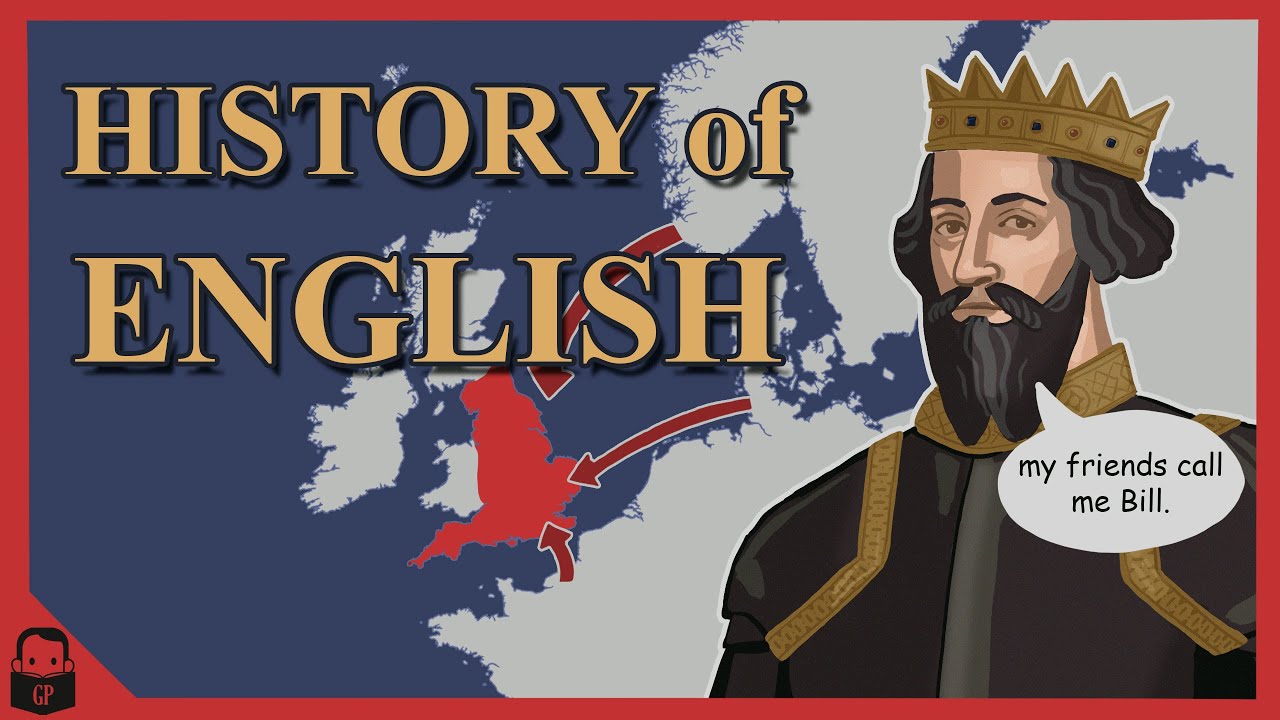The history of the English language
Summary
TLDRThis video explores the rich history of the English language, from its Old English roots in the 5th century to its modern form. It delves into how migrations, invasions, and cultural shifts influenced its development. Highlighting key periods like the Norman Conquest, the Renaissance, and the invention of the printing press, the video showcases how English evolved into a global language with a diverse vocabulary and grammar, shaped by historical events and technological advancements.
Takeaways
- 🏛️ The English language has a complex history influenced by various invasions, migrations, and cultural shifts.
- 🇬🇧 Old English emerged from the 5th to 11th centuries, influenced by the Anglo-Saxons from Germany, Denmark, and the Netherlands.
- 🔄 The Viking invasions introduced Old Norse, which contributed words like 'sky', 'egg', and 'window' to English.
- 🏰 The Norman Conquest in 1066 brought Old Norman, a variety of Old French, significantly influencing English vocabulary and grammar.
- 📚 Middle English (1150-1500 AD) saw the simplification of Old English grammar and the rise of regional dialects.
- 🎭 Geoffrey Chaucer's 'The Canterbury Tales' helped standardize Middle English and showcased its richness.
- 🌐 Early Modern English (1500-1700 AD) was shaped by the Renaissance and the printing press, leading to standardization and a Great Vowel Shift.
- 📖 The King James Bible (1611) and William Shakespeare's works greatly influenced the language's vocabulary and expression.
- 🌟 English spread globally with the British Empire, absorbing influences from diverse languages and cultures.
- 🌐 Today, English is a dynamic global language, spoken by over 1.5 billion people and continuously evolving with technology and communication.
Q & A
What significant event marked the beginning of the history of the English language discussed in the script?
-The history of the English language begins with the 5th Century AD, a period of great migrations and upheaval, following the withdrawal of the Roman Empire from Britain.
Which tribes from the European mainland are credited with the formation of Old English?
-Old English was formed by the Anglo-Saxons, a mix of tribes including the Angles, Saxons, and Jutes, who migrated from what are now Germany, Denmark, and the Netherlands.
How did the Viking invasions influence the English language during the 8th and 9th centuries?
-The Viking invasions brought Old Norse into the English language, contributing words such as 'sky', 'egg', and 'window' to the lexicon.
What major historical event in 1066 had a profound impact on the English language?
-The Norman Conquest of 1066, where William the Conqueror and his followers introduced Old Norman, a variety of Old French, which significantly influenced the English language.
How did the Norman Conquest affect the social stratification of language in England?
-Following the Norman Conquest, Old Norman became the language of the court, law, administration, and the elite, while Latin remained the language of the church and scholarly works, and the common people continued to speak English.
What changes did Middle English undergo grammatically compared to Old English?
-Middle English saw a simplification of the complex inflectional system of Old English, with many grammatical gender distinctions and case endings lost, leading to a more fixed word order and increased use of prepositions and auxiliary verbs.
Which literary work is an example of the East Midland dialect of Middle English?
-Geoffrey Chaucer's 'The Canterbury Tales', written in the late 14th century, is an example of the East Midland dialect of Middle English and helped to standardize and promote this form of the language.
What cultural movement beginning in the 14th century contributed to an influx of Latin and Greek words into English?
-The Renaissance, starting in Italy in the 14th century, led to a renewed interest in classical knowledge, resulting in the borrowing of Latin and Greek words into English.
How did the invention of the printing press by Johannes Gutenberg affect the English language?
-The printing press revolutionized the production of books, making literature more accessible and affordable, and played a crucial role in standardizing English by helping to unify spelling and grammar.
What is the Great Vowel Shift, and how did it change the English language?
-The Great Vowel Shift was a major change in the pronunciation of English long vowels between 1400 and 1700, altering the way words were spoken and contributing to differences between Middle and Early Modern English.
How did the King James Bible influence the English language in the early modern period?
-The King James Bible, published in 1611, was intended to be accessible to the general public and helped to further standardize English, with its phrasing and vocabulary leaving a lasting legacy in common use.
Outlines

Cette section est réservée aux utilisateurs payants. Améliorez votre compte pour accéder à cette section.
Améliorer maintenantMindmap

Cette section est réservée aux utilisateurs payants. Améliorez votre compte pour accéder à cette section.
Améliorer maintenantKeywords

Cette section est réservée aux utilisateurs payants. Améliorez votre compte pour accéder à cette section.
Améliorer maintenantHighlights

Cette section est réservée aux utilisateurs payants. Améliorez votre compte pour accéder à cette section.
Améliorer maintenantTranscripts

Cette section est réservée aux utilisateurs payants. Améliorez votre compte pour accéder à cette section.
Améliorer maintenant5.0 / 5 (0 votes)






